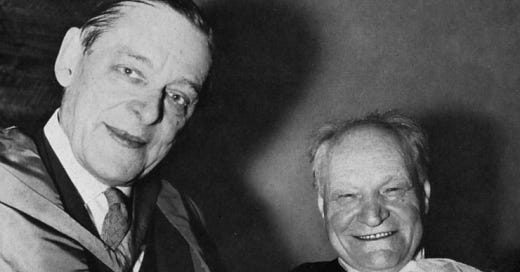I.
T.S. Eliot means many things to many different people. Like Yeats he won the Nobel Prize in Literature. In the academy he numbers among the titans of twentieth-century poetry, with The Waste Land hailed as the epic of our age, the twentieth-century equivalent of Homer or Milton. No study of twentieth-century poetry or literature more generally would be complete without him.
Importantly, Eliot ranks unusually high in esteem among conservatives, more so than perhaps any other purely twentieth-century poet. Roger Kimball titled his conservative literary review The New Criterion after Eliot’s review. And Russell Kirk, the godfather of mid-Twentieth Century American conservatism, placed Eliot squarely within the tradition of conservative thought harkening back to Edmund Burke. Kirk calls Eliot “the dominant poet of the twentieth century – who, with reason, saw himself in the line of Vergil and Dante,” and who “stood up conspicuously as a…
Keep reading with a 7-day free trial
Subscribe to The Chained Muse to keep reading this post and get 7 days of free access to the full post archives.




